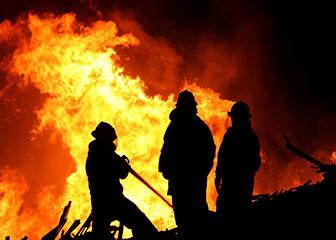Finding a Qualified Resume Writer for a...
|
| Resume Writers... | Thumbnail Review... |
|
www.resumewriters.com | Reasonable pricing, standout writing, and an interview guarantee from the largest network of resume writers on the Internet (representing more than 5 dozen career fields and industries). Guaranteed interviews within 60 days. The BBB gives them an A+ rating. |
|
|
www.greatresumesfast.com | Pricey, yes. But writing is "top shelf" from a team of HR Execs, Hiring Managers and former Recruiters, each detailed on the company's website. Expect an hour-long consultative phone session with your writer. Guaranteed interviews. The BBB gives them an A+. |
Considering a Career Move into Firefighting?
If you're considering a move into firefighting from either a closely related field or from a totally unrelated profession, you'll be looking for a transitional resume -- and a talented resume writer to handle the assignment. Transitional resumes are some of the most difficult resume projects as they require a writer knowledgeable in at least two professions -- and the ability to identify transferable skills from one to the other.
Before you hand off that resume assignment, make sure you know enough about the job of a Firefighter to... a) really want it, and b) be able to step up to the plate. Here's a quick overview (more information at Wikipedia - Firefighter):
 |
What You'll Do: The job entails: operating fire trucks and other emergency vehicles, using fire hoses and water cannons that shoot pressurized water to put out fires, performing search and rescue missions in burning buildings or out in the wild, offering on-the-spot first-aid services to injured victims, using various tools and equipment for entry and personal protection, documenting occurrences in regular reports, participating in routine drills, and attending community events to educate the public about fire safety. Most firefighting professionals work for the government. There are jobs at the local, state, and even federal level. Due to the nature of the work, your schedule will probably be very irregular. You will likely rotate between being on-call for several days and enjoying a break for a few. Being on-call means having to respond to emergencies at any time and during any weather, making the job very stressful and dangerous at times. |
 |
Education and Training: Firefighters are required to possess a high school diploma or GED. However, many have a two-year or four-year degree from a community college or university. Some schools offer formal firefighting-related courses to prepare prospective applicants mentally and physically for the real thing. In the US, you will need to be a minimum of 18 years old with a current driver's license to be eligible for the job. You also need to pass various interviews and drug tests before being hired. Once on the job, you will receive the majority of the training through the department you are stationed at or a formal firefighting academy. This training includes rigorous physical conditioning, first-aid practice, EMT training, fire-prevention methodology, building codes and regulations, disaster preparedness, and more. Certain departments may offer apprenticeship programs that can last anywhere from one to four years. |
 |
The Future: The Firefighting profession is expected to grow at about 9% through 2020. That's slower than the average for all occupations, and will mean keen competition for available jobs. |
 |
The Pay: Annual salaries for Firefighters in the U.S. range from $23,000 to $75,300, with the average median annual wage hitting $45,400 in 2011 as per the U.S. Bureau of Labor Statistics. |
Still interested in pursuing a position in Firefighting? Great. The next step is to prepare for a consultative telephone interview with your resume writer. Treat the coming job search like the business it is, and you'll do fine.
Best of luck,
David Alan Carter, OccupationalResumes.com

Tag or bookmark under:
Firefighter Resume | Municipal Firefighter Occupation | Resume Writing Services for Firefighters
_____
NOTE: This website
is monetized through the use of Affiliate Programs with the online providers we review. Read our Disclosure Statement for more information on our Affiliate
Relationships.
|



 Back To
Top
Back To
Top Facebook
Facebook Twitter
Twitter